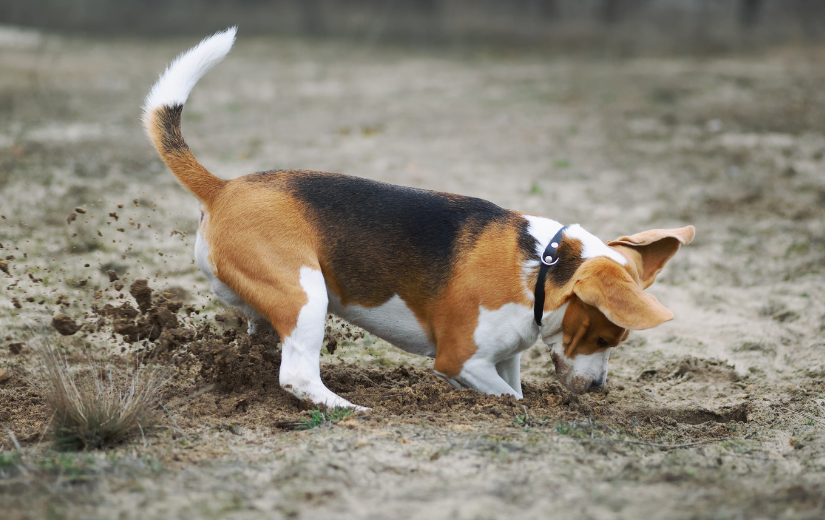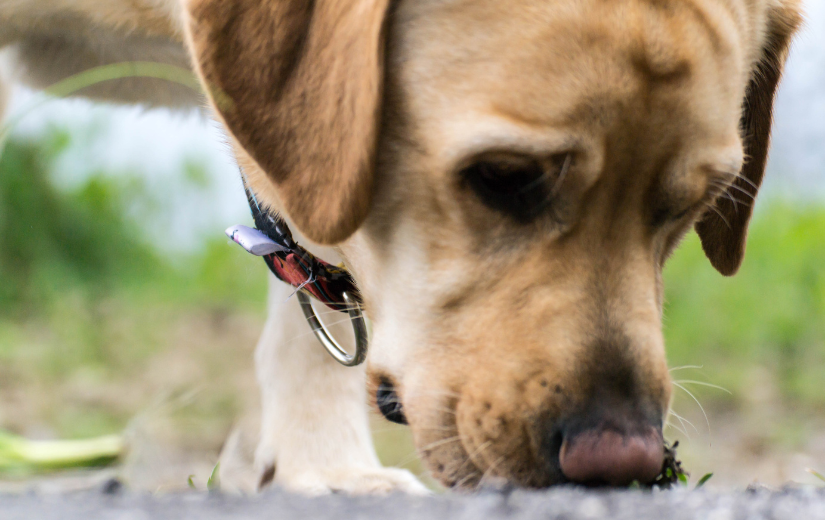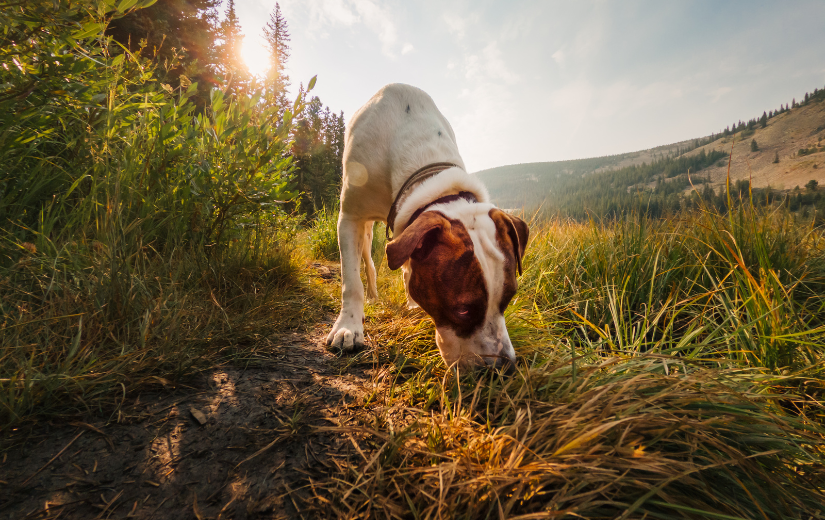Kind Corner: Sniff, bark, dig, chew! How to help your dog express natural behaviours

Sandy Middleton of Best Friends Dog Training and Behaviour explains the importance of letting our dogs express their natural behaviours and shares tips on things we can do to support them.
Let’s get reading!
Sniff, bark, dig, chew!
Sniff, bark, dig, chew, howl, bite, shred, destroy, mark, run, play, nest, scavenge – these are some of the natural behaviours that make dogs who they are. Specific breeds may also be predisposed to display certain behaviours as a result of breeding and artificial selection – think of the herding dog who chases, the terrier who digs, and the toy dog who barks (and barks and barks!)
These natural behaviours that dogs are born or bred to do are central to their welfare.
The opportunity to “express behaviours that promote well-being” is one of the Five Freedoms endorsed by the BC SPCA. It recognizes that an animal’s welfare is dependent on more than meeting basic needs and also includes the positive feelings that arise from fulfilling their behavioural needs.

Let dogs be dogs
How can we help our dogs express natural behaviours in our human-centric modern world?
The first thing we can do is examine our thinking.
We often see natural canine behaviours as problem behaviours that we want to stop.
When we see from the dog’s point of view and understand their behaviour is expressing an essential need, we shift our thinking to help them find an outlet to express the behaviour.
Of course, we cannot allow our dogs to dig up the garden, destroy the furniture, and steal food from the table. But we can give them safe and acceptable ways to meet their need to dig, destroy, scavenge, and act on other needs central to their nature.
Start by noticing the things your dog likes to do.
Each dog is an individual, and not all dogs experience behavioural needs in the same way or with the same intensity. Research your dog’s breed while understanding that breed is not always predictive of behaviour as many other factors also come into play.
Choose one thing to do or change for your dog and watch the difference it makes.
- If your dog likes to dig, create a special digging place in your yard – perhaps a child’s sandbox – where you bury bones, treats and other treasures to encourage your dog to dig there.
- If your dog is a shredder and destroyer, stockpile cardboard boxes and other materials and invite your dog to a destruction party.
- If your dog steals food off the table and countertop, try scatter feeding, find it games, snuffle mats, and other simple ways to let your dog hunt for food.
Be creative, experiment, and have fun! These small changes can make a big difference for our dogs.

Born to sniff
The most common natural behaviour for dogs is sniffing.
Scent plays a huge role in the life of a dog, but often we do not appreciate just how important it is. It is sad to see a dog on a walk pulled away from exploring and investigating smells.
Alexandra Horowitz in her book, Being a Dog, says that companion dogs are “losing their noses” because they are not using their smelling abilities to capacity and are forgetting how to be sniffers. She writes: “The typical owned dog gets a mound of food in a bowl once or twice a day whether he sniffs it out or not. He may be discouraged from sniffing the sidewalk, the lamppost, and even other dogs’ rear ends as his owner walks with him…”.
Therefore, perhaps the single most important thing we can do for our dogs is let them sniff, especially on leashed walks.
Sniffing carries enormous benefits – it is a wonderful mental exercise and the primary way dogs process information. Sniffing makes dogs feel good, lowers their heart rate, and has a calming effect.
If we find it frustrating or difficult to wait while our dogs sniff on a walk, we can shift our perspective and purposely take our dogs on a “sniffari” instead of a walk. Rather than pull our dogs away from sniffing, we can celebrate their brilliant scenting abilities. We can take the opportunity to slow ourselves down and let go of any sense of urgency to reach a destination.

Free to be who they are
Modern pet dogs live under many restrictions. Multiple rules govern their behaviour in public and at home, and they are subject to confinement through collars, leashes, fences, crates and other constraints.
Freedom to engage in the natural behaviours they were born or bred to do can help alleviate the impact of these restrictions.
When we let our dogs be dogs, we honour their nature and safeguard their well-being. We also share in their joy, and that’s one of their many gifts to us.
Reference:
Alexandra Horowitz, Being a Dog: Following the Dog Into a World of Smell. Scribner, 2017, p. 256.
